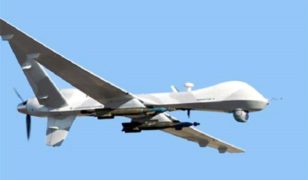United Nations, DigitalGlobe sign collaborative agreement
![]() DigitalGlobe, a global provider of high-resolution satellite imagery and geospatial solutions based in Longmont, CO, announced on February 26 the signing of a Memorandum of Understanding (MOU) with the United Nations.
DigitalGlobe, a global provider of high-resolution satellite imagery and geospatial solutions based in Longmont, CO, announced on February 26 the signing of a Memorandum of Understanding (MOU) with the United Nations.
Under the MOU, DigitalGlobe and the United Nations Office for Outer Space Affairs (UNOOSA) will take stock of their combined expertise in the use of earth observation technologies for economic, social, and scientific development and improved decision-making, particularly in developing countries.
“Cooperation and collaboration in the area of geospatial information and analytics will improve how the United Nations, including its Member States and its System of organizations, can address global economic, environmental, geopolitical, and societal issues,” said Simonetta Di Pippo, Director of UNOOSA.
“DigitalGlobe is thrilled to partner with UNOOSA, the United Nations body that promotes international cooperation in the peaceful uses of outer space,” said Jeffrey Tarr, DigitalGlobe President and Chief Executive Officer. “The arrangement provides an ideal platform to explore how high resolution satellite imagery and geospatial analytics can be more efficiently and effectively shared across the entire United Nations System, thus propelling us toward our purpose of Seeing a better world™.”
UNOOSA and DigitalGlobe will work to develop an online platform to provide easy access to imagery catalogues as well as data and analytical services specifically tailored for the needs of the United Nations. Under the agreement, DigitalGlobe will provide advisory services on remote sensing imagery and geospatial analytics, working with UNOOSA to advance and accelerate adoption of geospatial and satellite imagery-based analytics across the entire United Nations System. The cooperation will also extend to DigitalGlobe’s participation in relevant UNOOSA-supported events and activities, including those of the United Nations Platform for Space-based Information for Disaster Management and Emergency Response (UN-SPIDER) and of the United Nations Geographic Information Working Group (UNGIWG).
Source: DigitalGlobe








